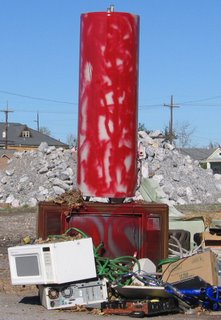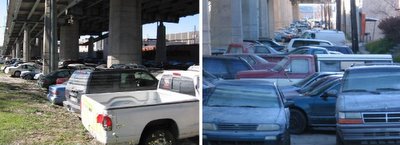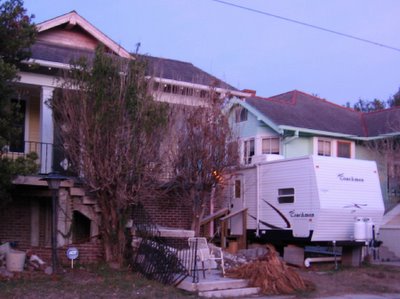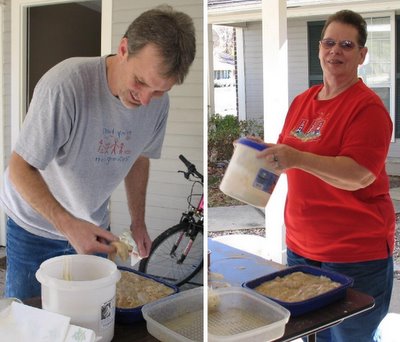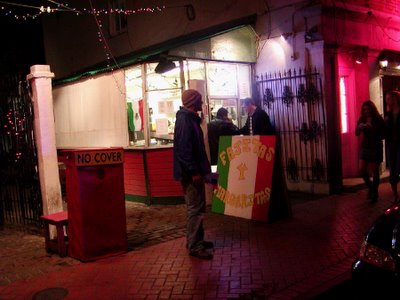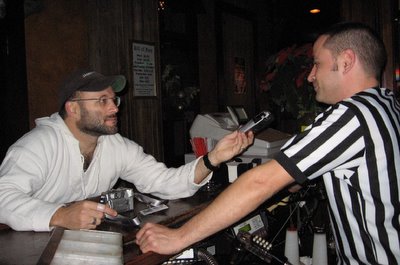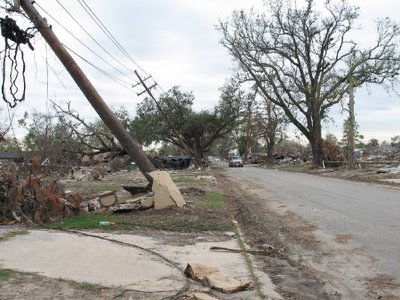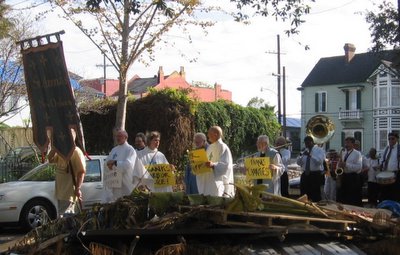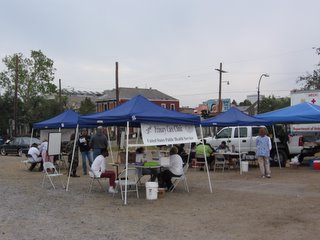
"I don't believe it," Rex said on his first morning of his extended visit to New Orleans.
We had just watched the little black pug vacuum down his 1/3 cup of dry dog food for breakfast.
Nero doesn't eat like other dogs.
He attacks every meal as though he hasn't had one in weeks and doesn't expect to get another anytime soon. He buries his entire face in the bottom of his bowl. It's a fully physical effort that apparently requires heavy breathing, guttural grunting and full use of his compact muscles.
I had warned Rex about Nero before the trip. I had told him about the constant begging when anything is being prepared in the kitchen. About the incessant floor licking, an eternal search for the tiniest morsel of nutrition that might have dropped from a plate. And about the rummaging through garbage of any kind.
But like Thomas in the Upper Room, Rex had trouble believing.
He concocted an experiment that, on the surface, seemed simple and harmless. We would keep giving Nero food until he stopped eating, at which point his "addiction" would be proven to have a limit. In the process, the experience might actually cure Nero of some of his obsession.
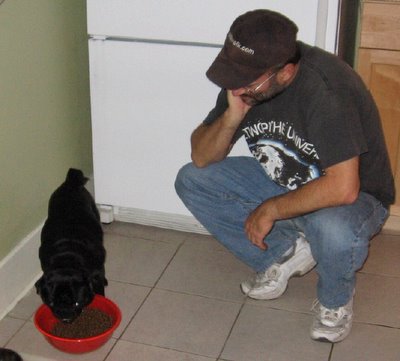 I told him it wouldn't work. Nero would just eat until the point of sickness, or organ failure.
I told him it wouldn't work. Nero would just eat until the point of sickness, or organ failure.Which brings us to Friday night. Rex decided it was time for the experiment. He filled a medium sized mixing bowl with dog food and put it beside Nero's feeding tray. The pug went wild.
We watched. Nero ate. We watched some more. Nero kept eating. Sometimes he would pull his head out of the bowl to chew. At one point he moved about a foot and a half away from the bowl, sat down and stared at the food in apparent confusion.
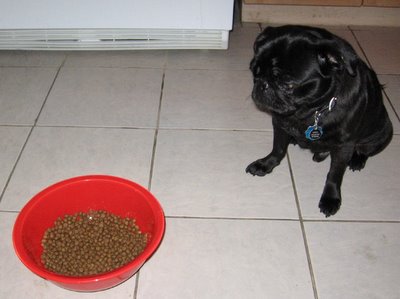 An amazing 15 minutes after the experiment began, Nero had finally had his fill, consuming 10 times his normal meal quantity. His chest and upper stomach were bloated. His eyes were slightly glassy. His movements were deliberate.
An amazing 15 minutes after the experiment began, Nero had finally had his fill, consuming 10 times his normal meal quantity. His chest and upper stomach were bloated. His eyes were slightly glassy. His movements were deliberate."It worked!" Rex exclaimed in triumph.
I still wasn't sure we had accomplished anything other than adding a couple of inches to Nero's waistline.
We all went to bed wondering what would happen next.
Nero's sleep was restless. I woke several times to find him pacing the floor for a minute or two then returning to his bed. His breathing also seemed accelerated but, otherwise, he showed no signs of stress.
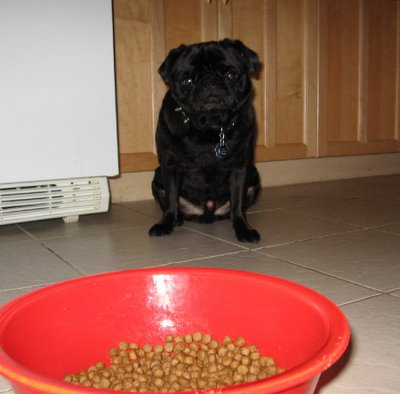 We woke in the morning to discover that Rex's experiment wasn't over. There was one more thing to do, he explained. We had to give Nero his normal bowl of food to see if the spell really had been broken.
We woke in the morning to discover that Rex's experiment wasn't over. There was one more thing to do, he explained. We had to give Nero his normal bowl of food to see if the spell really had been broken.I protested. Only hours earlier, Nero had eaten enough for the next week. Couldn't this end? Apparently not.
Rex scooped a regular serving of food into the pug's bowl and Nero raced for the meal. Then something amazing happened. Instead of shoving his face into the pellets, Nero pulled his head back and stepped away from the bowl.
He seemed as surprised as we were. The standoff lasted about half a minute. Then Nero slowly approached the bowl again and took a bite. He chewed slowly for a moment, then took another bite. Two minutes later the bowl was empty.
Was his momentary pause a sign of some mental reprogramming? Has his obsession abated, even a small amount?
I'm not sure at this point. But Nero does seem more sedate today. And he hasn't licked the floor once.
